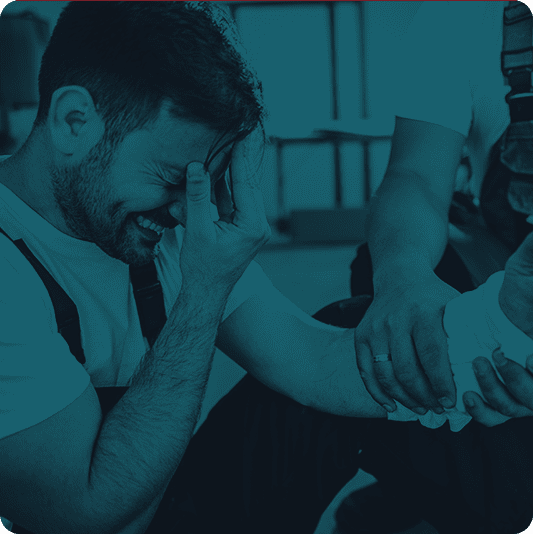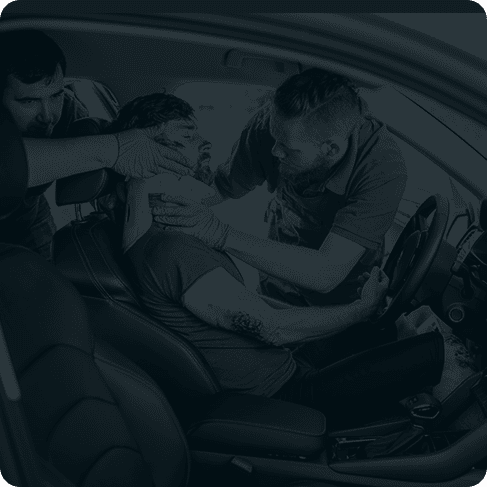When you have been injured through no fault of your own, you may be wondering what remedies you may have. Medical expenses add up quickly. In some instances, you may even have had to take time off from work. Taking time off work can cause even more stress – especially if you have lost wages.
It is important to know that you have options. One of those may be through a negligence tort. A tort is a wrongful act committed by one person that causes an injury to another. It also includes damage to property. However, there are certain basic elements of negligence that must be met in your personal injury or negligent claims. Below we will discuss 5 elements required to prove negligence.
1. Were You Owed A Duty Of Care?
The other party may have a duty to act under the law. If a certain relationship exists, they may be required to behave a certain way with you and others. The law outlines the types of relationships and what measures a reasonable person may expect from the other. A judge will determine if this element is present in your negligent case.
A daycare provider is a good example of this specific relationship. The caregiver is expected to keep the child safe and free from injury. Another example is a business owner. They are typically required to keep their facility free from certain hazards. In each case, there is a certain relationship where a duty of care or legal obligation is owed. If the case makes it to trial, the plaintiff will have to prove that the defendant owed them a duty of care not to cause them or others harm.
The success of any legal matter depends on the unique circumstances of each case, therefore, we cannot guarantee particular results for future clients.
2. What If There Is A Breach Of Duty?
If a business owner fails to provide their duty of care, they may have breached that legal duty. A negligence claim may be brought if they did not provide a safe environment for customers or clients. If your case ends up in a trial, a jury will decide if the plaintiff’s sufferance of an injury proves that the defendant’s breach caused the plaintiff’s injury. Whether the defendant acted with “reasonable care” can be a difficult issue that the jury will have to decide on. When you discuss the details with your personal injury attorney, he or she will tell you if they believe the defendant breached standard care. Your attorney will also discuss the steps and procedures if there was a breach of duty.
3. Proving Their Actions Caused Your Injury
You may hear “causation,” or “but-for” thrown around. This all references your need to prove that the other defendant’s actions caused the injury. Often, the argument will be that “but-for” their negligence you or your loved one would not have suffered a personal injury. You also would not have needed to make a personal injury claim with your insurance company.
4. How Does Proximate Cause Relate To Negligent Act?
Proximate cause relates to whether the other person could have foreseen the harm they caused. Did their failure to exercise reasonable care caused the other injuries? Would a reasonably careful person or someone else of ordinary prudence behave with a different level of care under the same circumstances? Once you’ve demonstrated that the defendant owed a duty of care to the plaintiff, next you must show that the defendant failed to exercise reasonable care and the breach was both the actual and proximate cause of the plaintiff’s injuries. This element applies to the range of responsibility the defendant may have. For example, a business owner would be liable for damages if debris crushed your personal property. However, they would not be responsible for injuries suffered in a car accident while taking your item for repairs. The business owner could not have reasonably foreseen the car accident even though his damage caused you to drive to a repair shop.
The Element Of Damages
Damages are recognized by law as a physical injury to person or property. Even if someone is required to provide you with a duty of care, you will need to prove that you suffered damages. It’s not enough for the other person to have just failed to provide a duty of reasonable care.
What Are Punitive Damages And When Does It Apply?
Punitive means to punish. In some cases, a defendant may receive some sort of fine or be required to pay a fee. The fine or fee is meant to punish the person for their negligence. The following are examples of when punitive damages may be awarded in a car accident case.
What Is Comparative And Contributory Negligence?
On its face, comparative negligence and contributory negligence are horses of similar colors. The Wizard of Oz reference aside, it all boils down to who is at fault. Let say, for example, you were driving down a busy street with heavy construction but did not abide by the warning signs. During that time, one of the construction vehicles pulls out and you are involved in an accident. Because the other driver hit you, they may be liable. However, because you did not follow the safety rules, you may be considered to have contributed to your own damages.
When you and another party have blame in who caused the injury or property damage, the court may award certain percentages to each. In other words, you may be responsible for 20 percent of their damages. They may then be liable for 80 percent of yours. A jury will decide who is at fault and to what percent.
What Should You Do If You Were Involved In An Auto Accident?
What you do from the beginning of an auto accident can help build your case, especially if negligence is involved. The following are a few key things to know:
Who Is The Plaintiff And Who Is The Defendant?
In a lawsuit, the plaintiff is the person who has suffered an injury or has damaged property. The defendant is the person who caused the injury or damage. The injured party who sues the other is considered the plaintiff because they are bringing the lawsuit. The other party will make a defense, which is why they are the defendant.
How Much Is My Claim Worth?
When you discuss your case with your attorney, he or she may be able to provide you with an approximate estimate. However, it’s important to know that any settlement for your injury claim will depend on certain variables. The type of accident, the severity of the injury, and what medical expenses or wage losses are will be considered. Additionally, any future medical treatment or rehabilitation will also be evaluated.
Several factors play into injury settlements and are negotiated in different stages as follows:
In some cases, you may be required to complete independent medical evaluations. This will help the insurance company and opposing sides determine what medical treatment is necessary now and in the future. Your primary care provider’s opinions will also aid in evaluating how much your legal claim may be worth. It is important to discuss your options with a personal injury lawyer so that you obtain the best settlement possible.
How Do I Know What Type Of Tort Law My Claim Falls Under?
As previously mentioned, a tort is a wrongful act committed by another person that caused injury or property damage through those actions. There are many types of negligence claims and cases that fall into a tort. Below are just a few of those subcategories.
If your injury was not caused by an auto accident, many of the same concepts apply. It’s important to discuss your injury claim with an attorney even if you are unsure which category your case may fall under. You will also want an attorney who is focused, professional and is experienced withholding insurance companies and adjusters accountable.
Our Expertise
We have your back. Whatever you might be suffering from, accidents, injuries or medical malpractice, we have you covered throughout Florida
Let’s get in touch!
The initial consultation is absolutely FREE
Denmon Pearlman
Law
Tampa Office
2504 W Crest Ave
Tampa, FL 33614
(813) 554-3232
Denmon Pearlman
Law
St. Petersburg Office
520 2nd Ave South
St. Petersburg, FL 33701
(727) 493-5610
Denmon Pearlman
Law
New Port Richey Office
5703 Main Street
New Port Richey, FL 34652
(727) 753-0049
Denmon Pearlman
Law
Brooksville Office
1790 E Jefferson St.
Brooksville, FL 34601
(352) 309-7354
Denmon Pearlman
Law
Seminole Office
5290 Seminole Blvd. Suite D
St. Petersburg, FL 33708






